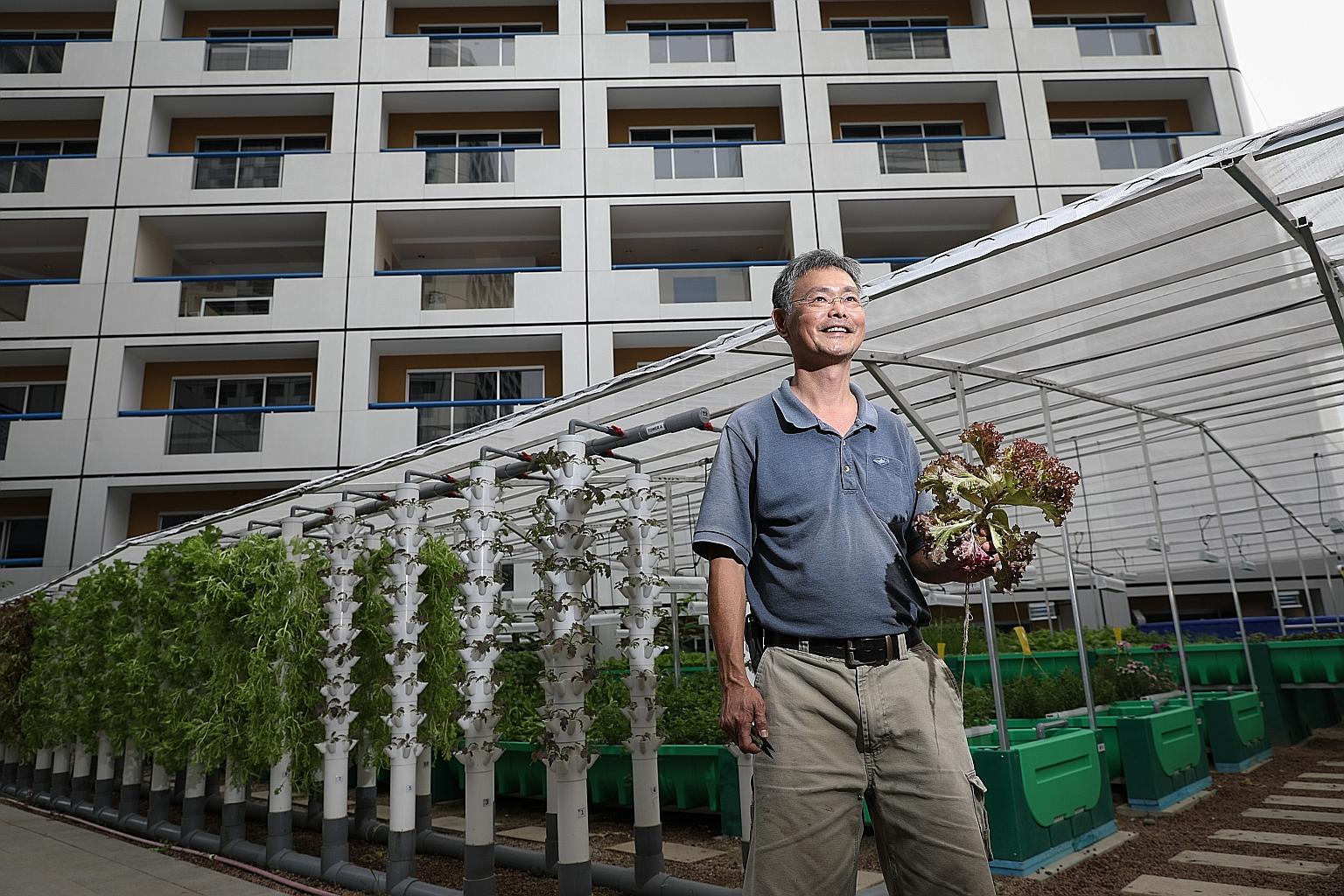Over 100 farms get fillip from $63m fund
Agriculture Productivity Fund helping them to increase yields and production capabilities
Sign up now: Get ST's newsletters delivered to your inbox

Mr James Lam, 59, a gardener for Fairmont Singapore and Swissotel The Stamford, at the aquaponics garden yesterday. The 450 sq m farm is expected to supply around 30 per cent of vegetables and 10 per cent of the fish needed in both hotels within 10 months.
ST PHOTO: ONG WEE JIN
Follow topic:
A total of 107 local farms have benefited from a $63 million fund to help them boost yields and increase production capabilities, said Dr Amy Khor, Senior Minister of State for the Environment and Water Resources, yesterday.
The Agriculture Productivity Fund by the Singapore Food Agency was set up in 2014, and can also co-fund research and development, and test-bedding of technologies.
Farms that have benefited include vegetable, fish, hen egg, shrimp and bean-sprout farms, as well as ComCrop's commercial urban rooftop farm in Woodlands.
Dr Khor commended the use of rooftops and other vacant spaces for urban farming by companies like Citiponics and Edible Garden City. "Such innovative farming approaches are encouraged because they maximise land use and can introduce greenery into the built environment at the same time.
"They also contribute towards our strategy to grow local and increase self-production to strengthen our food security."
Singapore imports more than 90 per cent of its food, but has around 200 food farms that can help to buffer the nation against global supply disruptions due to factors such as climate change.
Dr Khor was speaking at the opening ceremony of Fairmont Singapore and Swissotel The Stamford's aquaponics garden, which will supply vegetables and fish to the hotels' restaurants.
The rooftop urban garden rears both fish and vegetables in a closed-loop system, where fish waste becomes fertiliser for the vegetables and the roots of the vegetables filter and clean the water for the fish. The aquaponics system requires less water, space and labour than typical gardening methods.
It replaced a herb garden and began operations at the end of last month.
The 450 sq m farm is expected to supply around 30 per cent of vegetables and 10 per cent of the fish needed in both hotels within 10 months, said the hotels' general manager Marcus Hanna.
The move is in line with the Government's "30 by 30" goal, which aims to produce 30 per cent of the food that Singapore needs by 2030, he added.
Chef Robert Stirrup, the hotels' director of culinary operations, said: "We have 10 different types of mint plants, which we use in the bars, and a lot of leafy vegetables for salads. We also have rocket flowers and other types of edible flowers, which are pretty to use in dishes but expensive to purchase."
At the event, Dr Khor said it is "conceivable" that aquaponics systems are adapted for use in HDB estates, should existing community gardeners want to take them on, "but it must be a ground-up movement".
This article has been edited for clarity.

